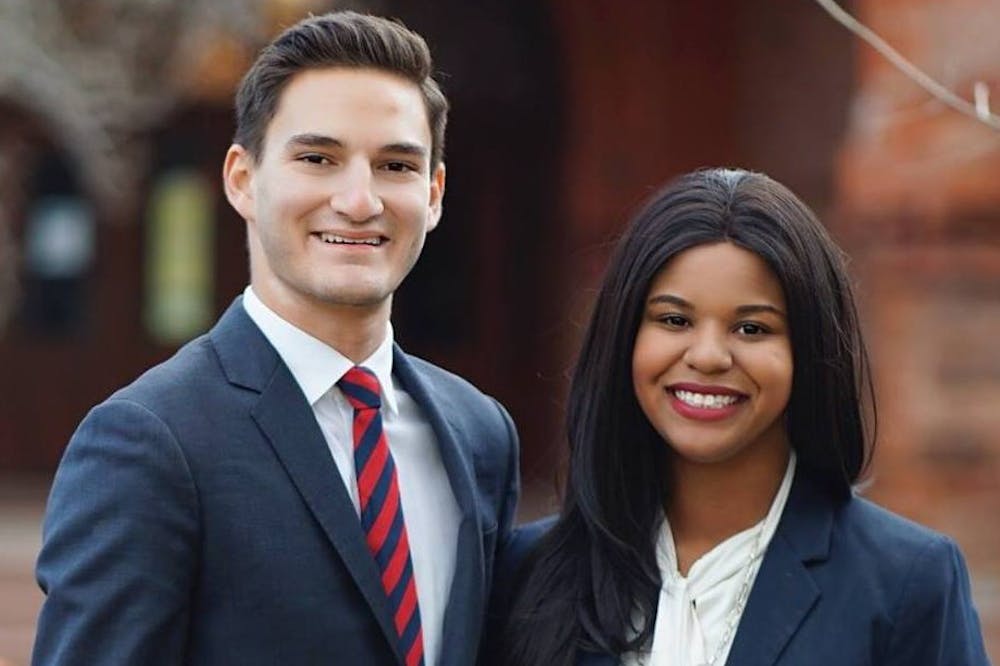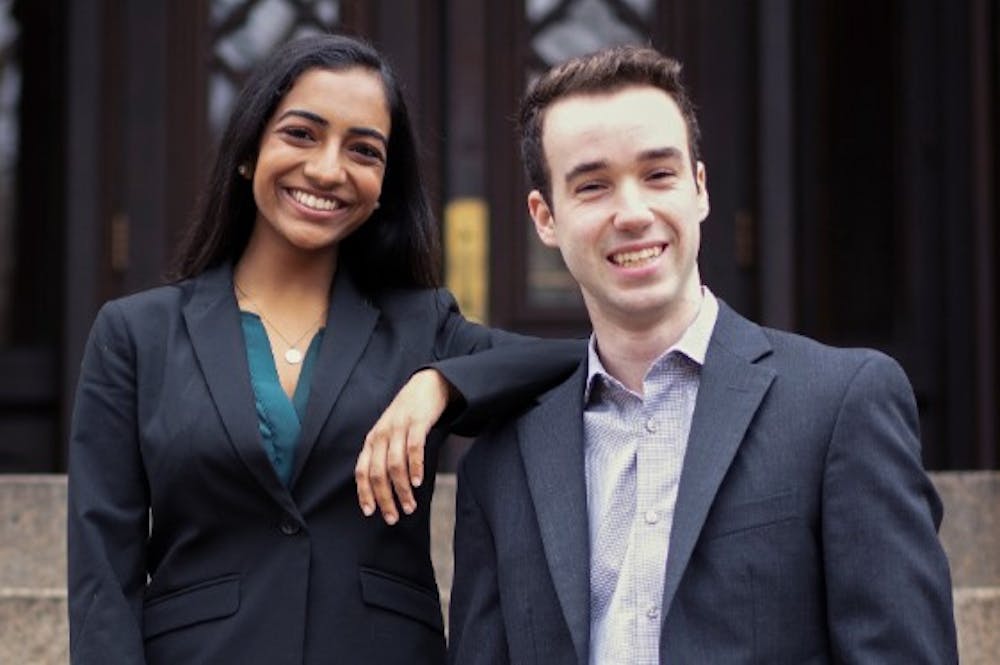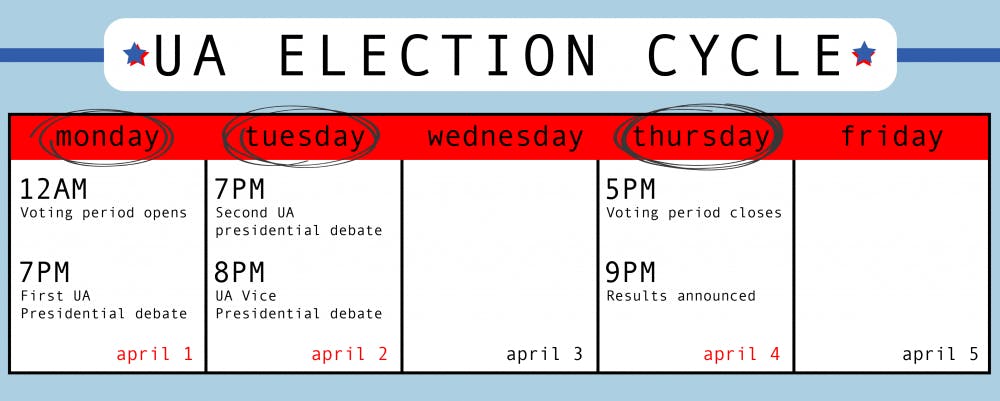
Maria Curry (left) and Natasha Menon (right).
Election season is heating up at Penn, with two presidential and two vice presidential candidates running in the Undergraduate Assembly election this week. As campaigns pick up and students prepare to vote for new leaders, the differences in campaign platforms will become evermore important to voters on campus. Below is all the information on the basics and logistics to this year's election, as well as what you need to know about the candidates before voting.
The basics
The voting period will officially open at midnight on Monday April 1, and close at 5 p.m. on Thursday April 4. The results are set to be announced on Thursday at 9 p.m.
The UA presidential candidates will have the chance to discuss their policy ideas at the presidential debates on Monday and Tuesday at 7 p.m. Their running mates will debate on Tuesday at 8 p.m., immediately following the second presidential debate.
Who's running for UA president and vice president
The race for president of the UA is between College and Wharton junior Maria Curry and College junior Natasha Menon. Curry currently serves as chair of the UA’s Dining, Housing, and Transit committee, and Menon currently serves as UA treasurer.
Curry is joined in the race by her running mate, College sophomore and UA representative Chase Serota. Menon’s running mate is College junior and UA Speaker Brian Goldstein.

Maria Curry and Chase Serota
Curry and Serota have framed their platform around the slogan, “A UA for You,” with the goal of bringing students closer to their student government.
“We think the UA has been disconnected, historically, from the student body, and therefore, the student body from administration,” Curry said.
Their platform consists of five pillars: transparency, equity and representation, sustainability, mental health and student life, and modern infrastructure.
Curry said that she plans to address transparency by holding more focus groups to connect students with administrators on topics like housing and dining, as well as by publishing agendas from UA meetings with administration.
Curry said that she and Serota have already been addressing transparency by drafting and passing an amendment requiring the UA to report revenue earned from airport shuttles on their annual budget.
Curry also said she wants to meet with University trustees and press them to commit to divesting from fossil fuels within the next year. She said that she and Serota have been meeting with Fossil Free Penn to collaborate in their divestment efforts.
To facilitate transportation around Philadelphia, Curry said she hopes to lobby with Business Services to allow Penn students to use their PennCards to load SEPTA credit to ride the city's public transport.
Curry cites her and Serota’s record in the UA as important qualities, specifically Serota’s project renovating the Van Pelt basement and Curry’s help in developing Penn Rides on Request.

Photo from Natasha Menon
Natasha Menon and Brian Goldstein
Menon and Goldstein have employed a five-pillar platform, consisting of transparency, inclusivity, accessibility, wellness, and academics.
Menon said she hopes to tackle wellness by recognizing how far-reaching the concept actually is, expanding beyond just mental health issues.
Menon hopes to expand Counseling and Psychological Services embedded models, similar to the one in Huntsman Hall, to more community-oriented settings, such as ARCH or the Women’s Center. She also hopes to address physical wellness by pushing for half-credit courses that focus on physical fitness.
Menon and Goldstein will also undertake a “know-your-rights” academic campaign by compiling resources to help students navigate situations where their personal rights may be infringed upon. Menon said these situations range from professors insisting on having class on snow days to harassment or inappropriate conduct in the classroom. The campaign would help students learn what their liberties are and who to contact in these instances.
Goldstein said that he and Menon will also tackle club recruitment in hopes of making the process less stressful for students. The UA is currently working on creating an online resource that details the clubs on campus, which Goldstein said he hopes to complete and promote this to the student body.

Goldstein and Menon, who both served on the UA’s executive board this year, cite their experience as one of their biggest qualifications.
“What’s really important is using those relationships you’ve developed with administrators over the past few years to effect tangible change,” Goldstein said.
The Daily Pennsylvanian is an independent, student-run newspaper. Please consider making a donation to support the coverage that shapes the University. Your generosity ensures a future of strong journalism at Penn.
Donate




